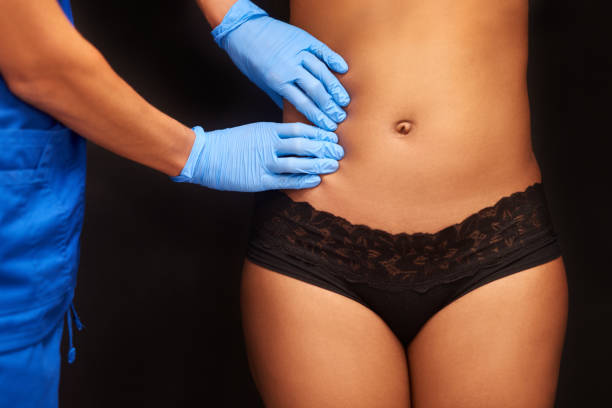
A 2016 study highlights the big business of liposuction. According to the report by the American Society of Plastic Surgeons (ASPS), researchers found that Americans are spending billions on getting nipped and tucked – to the tune of $16 billion in 2016 alone.
The most popular cosmetic procedures and their national average costs were:
- Breast augmentation: more than 290,000 procedures at a cost of about $3,700 each;
- Liposuction: about 235,000 procedures at $3,200;
- Nose reshaping: 223,000 procedures at $5,000;
- Tummy tuck: almost 128,000 procedures at around $5,800;
- Buttock augmentation: nearly 19,000 procedures at about $4,400.
RELATED: The True Costs Of Black Plastic Surgery
While the procedures are generally considered safe, an article in BMJ Case Reports underlines a rare complication that nearly cost one woman her life, Health reports.
In the paper, doctors recall an instance where they diagnosed and treated a patient who developed a rare and serious condition called fat embolization syndrome following a routine nip and tuck.
About 36 hours after having 10 liters of fat removed from her lower body, the patient became drowsy and confused, and her heart rate spiked.
When severe, fat embolization -- a disruption to blood supply caused by fat globules in a blood vessel -- is associated with respiratory failure, neurocognitive deficit, and death.
While it is common with long bone fractures or after major trauma, it’s also been documented a few times after liposuction.
Unfortunately, like other rare conditions, doctors argue that it is “notoriously difficult to diagnose.” In fact, many plastic surgeons don’t know to be on the lookout for symptoms, the report says.
Of course, fat embolization isn’t the only health risk associated with the popular cosmetic procedure. Possible complications specific to liposuction include:
- Contour irregularities, which cause the appearance of bumpy, wavy or withered skin due to uneven fat removal, poor skin elasticity or unusual healing. The irregularity may be permanent or, at the least, leave your dermis with a spotted look.
- Fluid accumulation occurs when temporary pockets of fluid form under the skin. In most cases, they are treated by being drained with a needle.
- Kidney and heart problems can result from changes in fluid levels as liquids are being injected and suctioned out of the body.
RELATED: Love Handles: Say Goodbye to the Fat You Love to Hate
Precautions
Now that you’re hip, if you’re considering liposuction or any other form of cosmetic surgery, first consult your doctor about both the potential benefits and risks.
Furthermore, it’s important to do your research and conduct interviews before selecting a surgeon to complete the procedure.
A good starting place would be researching doctors through the American Board of Plastic Surgery.
Part of that search should include confirming that the doctor operates in an accredited hospital or medical facility.
Following your surgery, remember to follow your surgeon’s post-op instructions, which can help reduce the risk of common, yet sometimes dangerous, complications.









